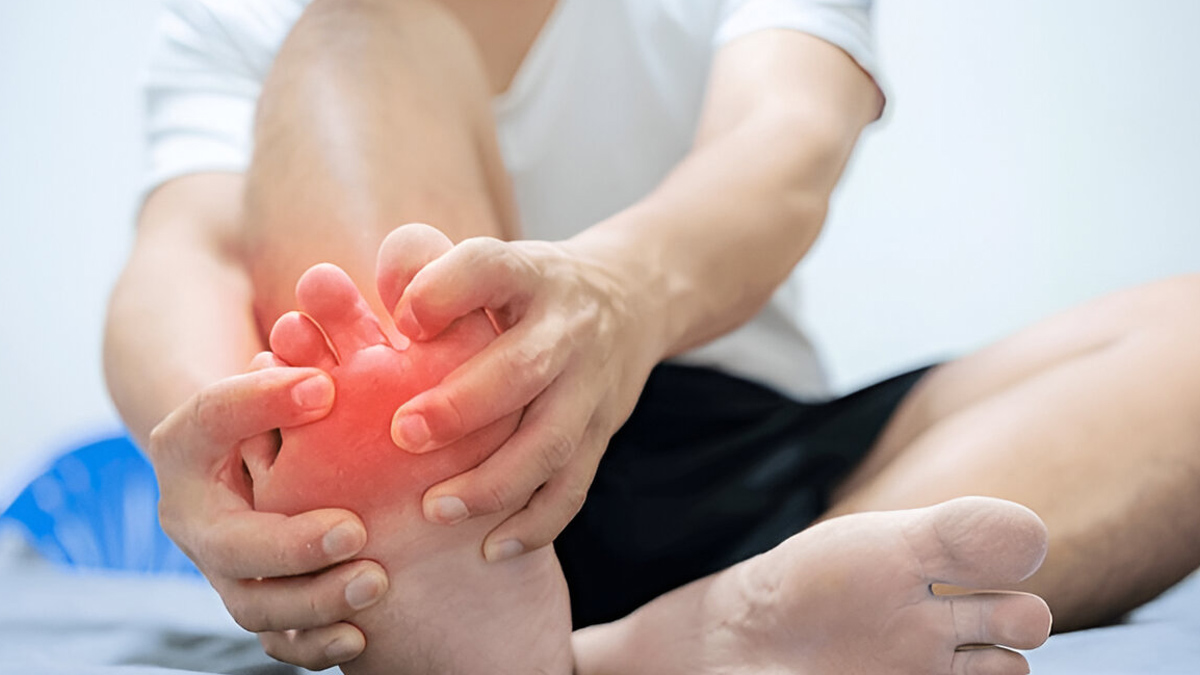
Have you ever experienced a sudden, sharp pain in your knee or wrist following a fall, exercise, or even rolling off the couch? That sudden joint pain can be shocking and frustrating. One moment, you’re moving fine; the next, your joint is swollen, stiff, and hurting, making even simple tasks feel like a challenge. This kind of quick-onset joint pain is often caused by what doctors call acute arthritis.
Table of Content:-
We spoke to Dr Samarth Arya, Consultant - Orthopaedics and Robotic Joint Replacement Surgery, Manipal Hospital, Old Airport Road, Bengaluru, who explained the common causes behind that sudden flare-up of pain, what it can lead to if left untreated, and what you can do to protect your joints.
What Is Acute Arthritis and Why Does It Hurt So Suddenly?

"Acute arthritis is not a disease itself but rather a term used to describe sudden inflammation or pain in a joint. This usually occurs as a result of an injury or a pre-existing condition that makes the joint respond rapidly with swelling, redness, and pain," explained Dr Arya.
One of the most common triggers is injury, such as a sprain, strain, or fracture. When you fall heavily on your knee or twist an ankle severely, the soft tissue (ligaments, tendons, cartilage) and bones in the joint area may be injured. This injury inflames the joint lining and causes inflammation, resulting in sharp pain and stiffness.
Also Read: Signs Your Rheumatoid Arthritis Is Going From Bad To Worse
Sudden Joint Pain Due to Arthritis
Joint injuries are often seen after falls, blows, or overexertion of the joints due to repetitive motions, especially common among fitness enthusiasts and athletes. They are often the most common culprits for acute arthritis, causing pain, swelling, and reduced range of motion.
Exacerbation of chronic conditions like arthritis, which can either be primary arthritis (osteoarthritis) or secondary arthritis (rheumatoid arthritis and gout), can also result in the sudden onset of pain.
Different Faces of Joint Pain: Primary and Secondary Arthritis
- Primary arthritis (most often osteoarthritis) tends to come with ageing and doesn’t have a clear cause other than natural wear and tear.
- Secondary arthritis happens when there’s an identifiable reason for cartilage damage, such as autoimmune conditions like rheumatoid arthritis or metabolic issues like gout.
Both types can cause sudden pain if the joint is injured or inflamed quickly.
Bursitis and Other Causes of Sudden Joint Pain

- Bursitis is also a cause of acute joint pain in some patients. Bursae are tiny fluid-filled sacs which pad the bones, muscles, tendons, and ligaments near the joint and prevent friction when the joint moves. Bursitis resulting from inflammation of these fluid-filled sacs that cushion the joints can cause sudden, localised joint pain.
- Infections of the joints (septic arthritis) can also cause a sudden and severe onset of joint pain. The organisms responsible for the bacterial infection damage the joint cartilage, exposing the underlying bone, which results in severe joint pain. According to StatPearls, people with specific pre-existing risk factors, such as immunodeficiency, older age, diabetes, prosthetic joints, rheumatoid arthritis, and intravenous drug use are more likely to develop this condition.
- Some of the less common possible causes include gout (high uric acid), lupus, or even cancer.
Impact of Sudden Joint Pain
It’s easy to shrug off joint pain as 'just a sprain' or 'getting old,' but ignoring it can have lasting consequences. Acute joint pain can:

- Restrict your daily activities, making it difficult to walk, lift objects, or even sleep.
- Cause permanent joint damage if the underlying cause isn't addressed, especially infections or untreated injuries.
- Develop into chronic arthritis if inflammation continues unchecked.
- It may affect other parts of the body if caused by systemic diseases like rheumatoid arthritis.
- In short, acute joint pain is a warning sign your body needs help, and delaying treatment can make things worse.
When to See a Doctor
"If your joint pain occurs after a severe injury or is followed by swelling, redness, fever, or difficulty moving the joint, you need to consult an orthopaedic expert early. Getting an early diagnosis and treatment can avoid causing permanent damage and have you back on your regular activity sooner," advised Dr Arya.
[Disclaimer: This article contains information provided by an expert and is for informational purposes only. Hence, we advise you to consult your professional if you are dealing with any health issue to avoid complications.]
Also watch this video
How we keep this article up to date:
We work with experts and keep a close eye on the latest in health and wellness. Whenever there is a new research or helpful information, we update our articles with accurate and useful advice.
Current Version